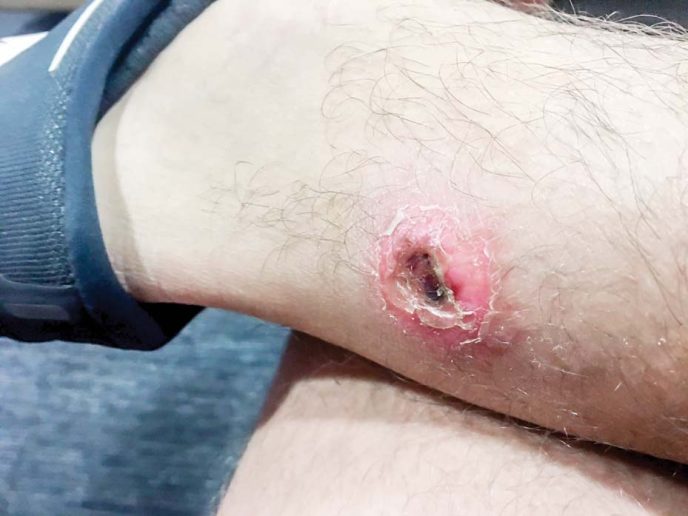MORNINGTON Peninsula Shire is looking to recruit 500 households in Blairgowrie and Rye as part of a research study into the Buruli ulcer.
The study involving mosquito surveillance, trapping and control activities is being run with advice from public health physicians, medical entomologists, council staff and research partners from the Doherty Institute.
The aim is to disrupt the transmission of the ulcer and lead to evidence-based policies and guidelines to help stop its spread.
About 250 households will become intervention zones with 10 Gravitraps placed strategically and inspected regularly. The other 250 houses will be control zones where no activities will occur. By comparing mosquito numbers in the two zones the study team will be able to gauge the effectiveness of the intervention as they seek to gain the upper hand in beating the ulcer.
The team will begin knocking on doors to recruit households throughout Blairgowrie and Rye this Saturday (27 February).
As part of the study, Ovitraps will also be placed on public land along fence lines so researchers can count and analyse mosquito eggs non-intrusively.
Blairgowrie and Rye were chosen for targeted mosquito control because they are considered high-risk areas.
Buruli ulcer cases have increased significantly in recent years, particularly on the Mornington and Bellarine peninsulas, with possums and mosquitoes believed to be carriers of the causative bacteria.
This latest ulcer fight addresses community concerns raised two years ago around the use of spraying – or fogging – to control mosquitoes. (“No to fogging in ‘mossie’ fight” The News 26/8/19). It does not involve spraying or pose any risk to bees, wildlife, or any other insects, the shire says.
Education campaigns targeting homeowners will aim to ensure they are not unintentionally creating breeding habitats for mosquitos.
“We heard the community’s concerns in 2019 and hope this new method will not only keep our environment safe but will continue the progress in protecting the peninsula from the Buruli ulcer,” the mayor Cr Despi O’Connor said.
Professor Tim Stinear, of the Doherty Institute, University of Melbourne said the “world-leading research” was an opportunity to understand and control the spread of Buruli.
“The lessons learned from this study will inform Buruli ulcer control efforts worldwide,” he said.
The Gravitrap is a hay infused cylindrical trap with a sticky inner surface that reduces mosquito numbers around homes. They are non-toxic and used all over the world.
Non-toxic mosquito-specific larvicides will be placed in backyard breeding sites, such as rainwater tanks, septic tanks, ponds, and bird baths. They are not toxic to humans or animals.
The Doherty Institute will be running an online information session 6-7pm, Thursday 25 February.
Details: www2.health.vic.gov.au/beatingburuli
To participate in the trial email Dr Peter Mee at peter.mee@unimelb.edu.au or sign up at forms.gle/exeTCvWZAYwhng2F9
First published in the Southern Peninsula News – 23 February 2021



